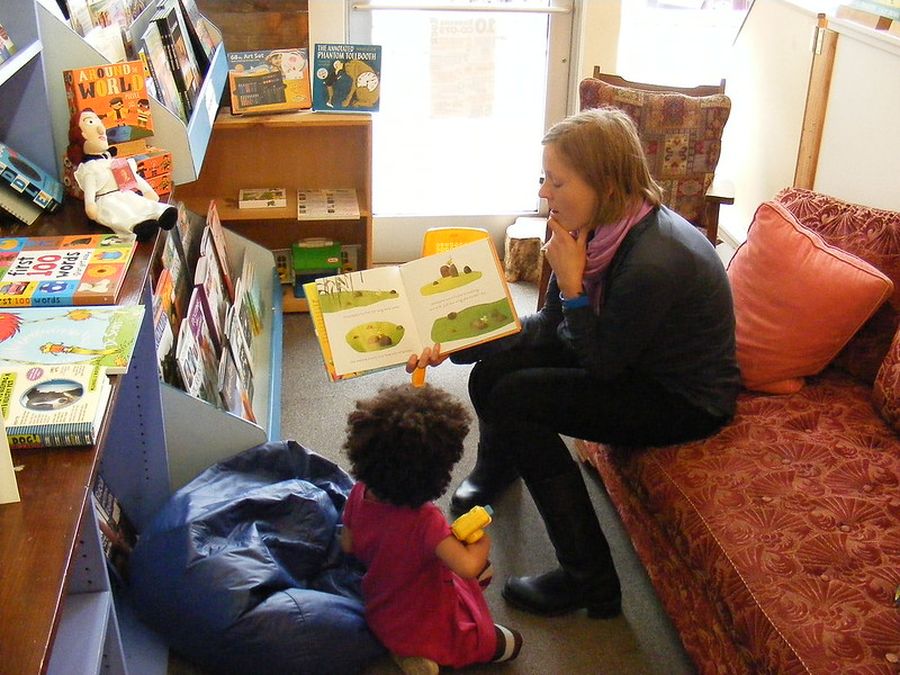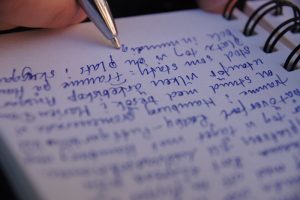|
Getting your Trinity Audio player ready...
|

When constructing a piece of written work, reading aloud allows the ear to hear what the mouth is trying to convey. The moment those construed words or that tangled thought rolls off tongues, the ear will decline and return the information as “null and void.”
Most people read or proofread their work or the work of others silently. Doing so leaves room for errors or missed mistakes. Silent reading only engages the eyes, which can sometimes overlook mistakes in writing. When a person begins to read aloud, their voice gives life to the words, and they can now hear if what their eyes saw really makes sense.
The mind and the eyes can sometimes play tricks on us, especially when tired. There is sometimes a disconnect between what is seen versus what is said. For instance, sometimes, a person will write things pleasing to the eye and sound great in their minds. But, once it is read aloud, it is easy to recognize when the message did not come across as intended.
between what is seen versus what is said. For instance, sometimes, a person will write things pleasing to the eye and sound great in their minds. But, once it is read aloud, it is easy to recognize when the message did not come across as intended.
Although the mind can be a tricky thing and the eye can be deceiving, spoken words do not lie. When having a conversation with someone and using a subject and verb that do not agree, the error is heard right away. On the other hand, that same subject/verb disagreement may be left unnoticed on paper.
Memory Retention When Reading Aloud
A successful way to retain knowledge besides reading or listening is reading and vocalizing text aloud. According to the analysis printed in the journal Memory, this twofold result of talking and apprehending aids discernment of remembrance more adequately.
People are more likely to remember information that is read aloud. A current study by Waterloo University discovered that verbalizing content aloud allows words to enter a person’s long-term memory. Classified as the “production effect,” the researchers concluded that it is the double effort of speaking and hearing what is said that has the greatest advantageous influence on memory.
This research certifies that instruction and recollection profit from vigorous participation, said Colin M. MacLeod, a professor and chair of the Department of Psychology at Waterloo. This collaborative study was co-authored by Noah Forrin who was also the lead author. When we incorporate an effective degree or a constructive component to a word, that word resinates more clearly in long-term memory, and as a result is more memorable.
How Reading Aloud Enhances Cognitive Learning at Any Age
Cognition refers to the mental action or process of acquiring knowledge and understanding through thought, experience, and the senses.
Most people associate reading aloud with children or immature readers. The instant a person learns to read wordlessly, then reading aloud is now something rarely done. However, increasing research indicates that reading aloud can literally pos sess remarkable cognitive benefits — even for skillful readers.
sess remarkable cognitive benefits — even for skillful readers.
A recent study used four separate exploratory situations to separate precisely which components were accountable for better memory retainment. The 95 individuals in this study were requested to either read silently, read aloud, listen to audio of someone else reading, or give ear to their own recorded voice. Maintaining the information read was most effective from material that was read aloud. These results propose that the influence did not come from only hearing the words but also speaking them. This is because verbally pronouncing a word creates a memorable experience.
As a dance instructor, I personally find spoken words to be the most effective way for my students to retain steps and remember choreography. As a matter of fact, whenever I am teaching a dance, not only do I demonstrate the steps, but I also verbalize each movement. Afterwhich, I then have the students repeat the steps out loud at least five times. For me, this method works every time, whether I am teaching adults or children.
Words are powerful. Use them wisely and effectively. Written works are just one part of being a great writer. Once your thoughts are on paper, practice reading aloud. This way, we can hear if it makes sense, or we can listen for mistakes, remember, our mouths say things the ear will reject. After all, we do want others to read, understand and enjoy or scripts.
Written by Sharri Rogers
Edited by Cathy Milne-Ware
Sources:
ScholarWorks@UMassAmherst: Revising by Reading Aloud. What the Mouth and Ear Know; by Peter Elbow
ScienceDaily: Reading information aloud to yourself improves memory of materials; by University of Waterloo
Fast Forward A Carnegie Learning Solution: Little-Known Truths About Reading Aloud; by Dylan Hendricks
Featured and Top Image Courtesy of Food For Thought Book’s Flickr Page – Creative Commons License
First Inset Image Courtesy of Melanie’s flicker Page – Creative Commons License
Second Inset Image Courtesy of JoanDragonfly’s Flickr Page – Creative Commons License



